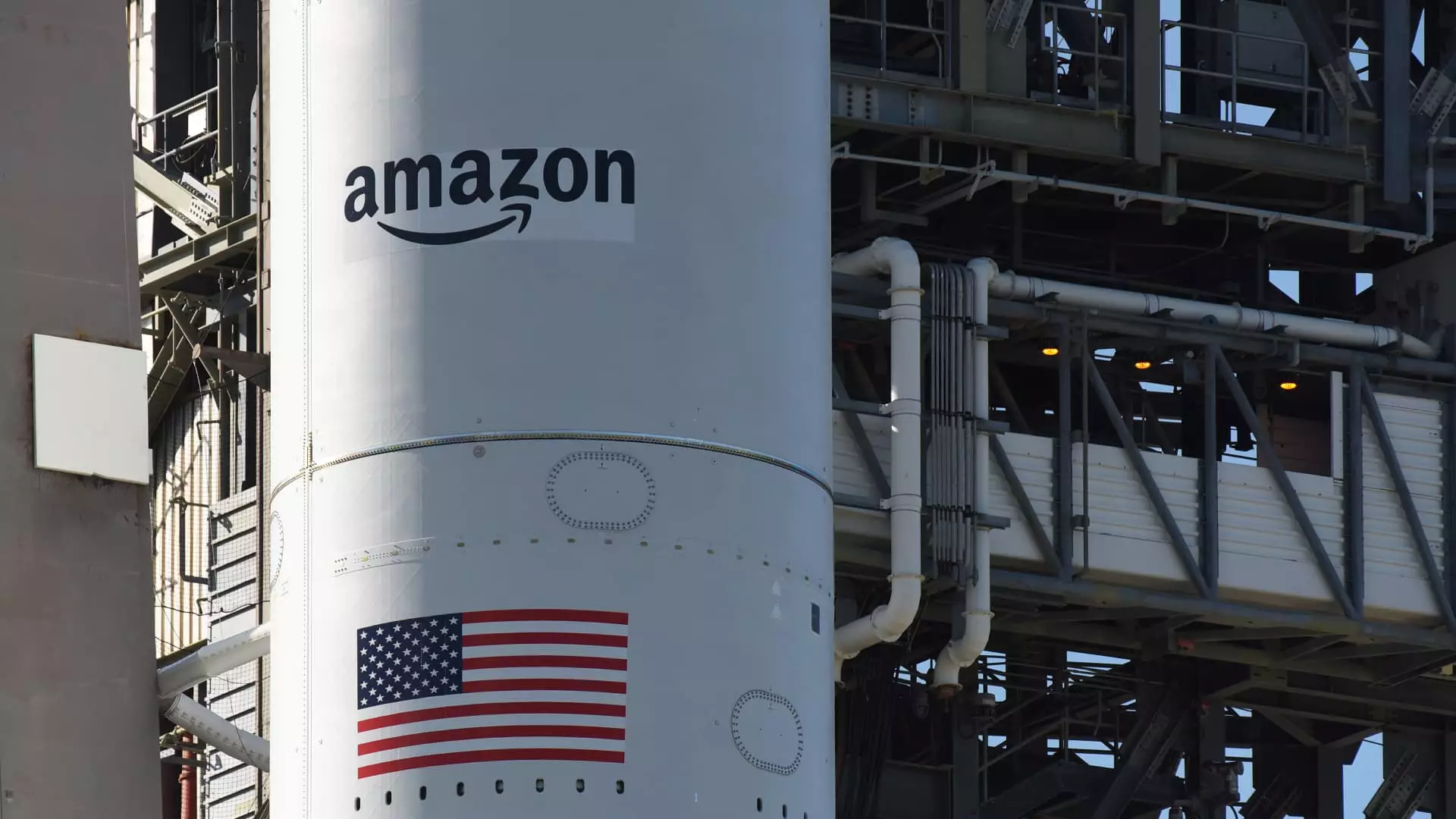In a world where technological advancements and the race towards space connectivity are accelerating at an unprecedented pace, the news of Amazon’s delay in launching its Kuiper internet satellites is a stark reminder of the unpredictability that accompanies such ambitious ventures. The much-anticipated launch from Cape Canaveral had to be canceled, attributed to less-than-favorable weather conditions. “Stubborn cumulus clouds” and heavy winds essentially thwarted what could have been a groundbreaking moment for Amazon and its constellation ambitions.
This incident raises critical questions about the logistics and planning involved in launching satellites, especially given the pressure companies face to meet regulatory deadlines. The United Launch Alliance (ULA) aptly pointed out the adverse weather issues, but one can’t help but wonder if there was an over-reliance on optimistic weather forecasts or if contingency plans were improperly formulated. In an industry that thrives on precision and timing, such a delay can set off a ripple effect in timelines and deployments, transforming excitement into frustration.
Competing Against Established Giants
Amazon’s strategic entry into the satellite internet market represents its determination to carve out a share in a highly competitive landscape dominated by SpaceX’s Starlink. With its own fleet of 8,000 satellites already operational, Starlink has set a daunting precedent for emerging players. The stakes couldn’t be higher. Not only is Amazon racing against a looming Federal Communications Commission (FCC) deadline to launch half of its planned constellation by July 2026, but it is also battling the entrenched networks and loyalty that consumers and organizations have built with SpaceX.
One must consider whether Amazon’s late start in this technological race, compounded by setbacks like the recent launch delay, places its ambition at risk. With Elon Musk gaining influence as a central figure in the White House and his initiative expanding Starlink’s reach within governmental operations, Amazon’s Kuiper project could quickly be overshadowed. The dual pressures of regulatory deadlines and market competition create an atmosphere that is anything but forgiving.
The Stakes for Connectivity and Innovation
The need for improved internet access has never been clearer, particularly in the aftermath of the COVID-19 pandemic. As remote work and online education become the new norm, the demand for high-speed, low-latency internet has surged. Amazon’s investment in the Kuiper project is seen as a potential game-changer, especially for underserved communities. However, the setbacks like this delay can have tangible consequences for those who are eagerly awaiting better connectivity.
The implications of Amazon’s Kuiper can extend far beyond just consumer internet. The ability to provide quick and reliable service can help various sectors—from education to healthcare—transform their operations. But will these critical advancements come on time, or will bureaucratic missteps and technological hiccups continue to stymie progress?
What this delay underscores is a critical point: while the ambitions of giants like Amazon and SpaceX can pave the way for unprecedented connectivity, they remain deeply vulnerable to the planet’s whims. The intersection of innovation and nature is often where dreams can stall. In the grand arena of space commerce, it’s been proven time and again that one must be prepared not only to navigate the stars but also the storms that come along with them.

